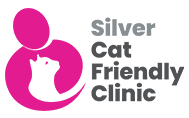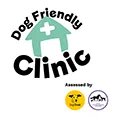
Why is dental health for pets important?
Just like you, your pet needs to maintain healthy teeth and gums. But unlike you, they cannot do this by themselves!
With dental diseases extremely common in pets, by the age of 5 a lot of them will need dental treatment. Primarily caused by a combination of dietary and genetic factors, thankfully, there are things you can do to help.
What could be wrong with my pet?
Knowing what dental health problems your pet may suffer with is important so you can help prevent them. They include:
- Calculus Tartar – Yellow/brown staining, hardened deposits of dental plaque.
- Gingivitis – Inflammation of the gums. Gums should be salmon pink if red, they are inflamed.
- Periodontitis – Inflammation/infection of the tissues that support the tooth in its socket.
- Resorptive lesions – Painful erosive wounds that are unique to cats. Also referred to as neck lesions and feline odontoclastic lesions.
- Fractured teeth
- Infection/abscess
But my pet seems to be eating so they must be ok!
Not always. A lot of dental problems can start without too much pain and therefore do not cause much disruption to everyday routine, such as eating or sleeping.
However, a condition like gingivitis (sore, red gums) could, without treatment, lead to periodontal disease; receding gums, tooth root exposure and infection. This is extremely painful and ultimately irreversible if overlooked.
Resorptive lesions in cats are particularly painful. Many cats suffer in silence with teeth that have the sensitive “core” of the tooth exposed. Fractured/broken teeth can also reveal this and gradually lead to painful inflammation of the tooth.
Dogs and cats rarely yelp if they are in pain. Yelping is normally associated with acute/immediate pain e.g. neck or spinal pain. Chronic pain is much harder to spot in cats and dogs – they express extreme discomfort differently from us.
Encouragingly, many owners report back that after the dental work has been done, their pet appears significantly brighter and happier, which means that underlying pain is being resolved. Remember, animals will only stop eating If the pain becomes excruciating.
Hmmm, well can it wait?
Most dental cases aren’t a dire emergency. They may have been grumbling away in the background without you noticing for a while. However, dental disease is progressive and things will gradually get worse. The longer the delay, the more likely your pet will suffer irreversible damage – this means potentially more extractions, resulting in a longer anaesthetic and also more expense. If you can, it is definitely better to get treatment sooner rather than later. If you are insured, be aware that not all companies will cover dental treatment – and those that do may subsequently refuse to pay if work that was recommended by the vets is not carried out promptly.
Aftercare and prevention
Dental hygiene is all about prevention and home care. We have a variety of different ways to help reduce the likelihood of future problems and maintain your pet’s oral health, see below or ask a member of our friendly team for some free advice – Simply call or pop in and see us.
Our top tips for a tip top month
- Regular tooth brushing is the most effective way to control plaque build-up that leads to tartar.
- Specifically designed pet toothbrushes and toothpaste must be used.
- If tooth brushing is not an option, don’t worry! There are various other products which can be applied directly to the mouth or given in food which can help reduce tartar build-up.
- Dental treats are not as effective as tooth brushing but can have a modest effect on tartar build-up so can be worth a try.
- Just be aware that these treats tend to be high in calories though so do make sure you are taking this in to account.
We are currently running our dental offer until the 31st March 2019 which consists of 20% off a dental scale and polish. When joining our brand new pet health plan you are able to save an extra 15% on top of this meaning you would save a whopping 35% off a scale and polish.








